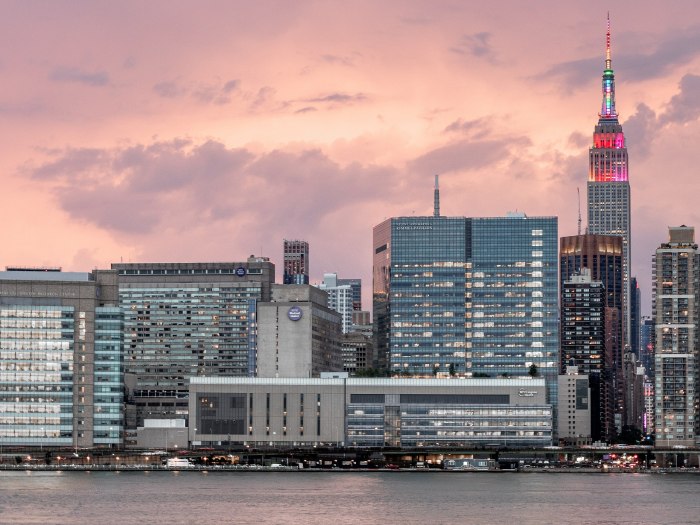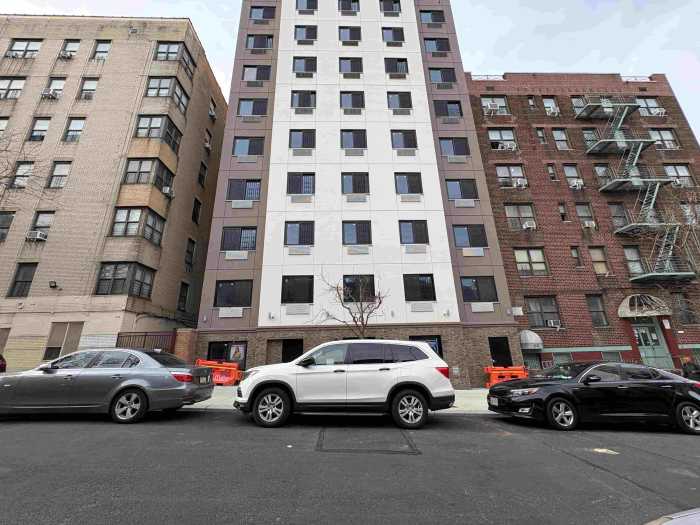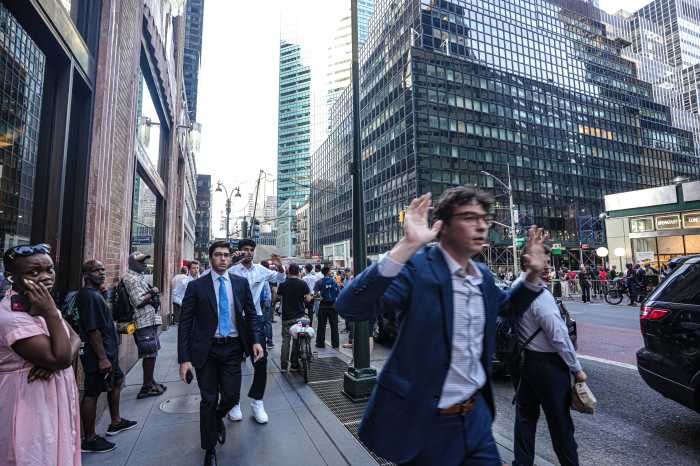BY PAUL SCHINDLER | George W. Bush, even after a year of flagging popularity due in large measure to his disastrous Iraq policies, continues to effectively leverage the bitter memories of 9/11, rhetoric about looming, if ill-defined global threats, and his often secretive war on terror as means of stifling coherent and unified arguments among his domestic opponents.
The failure of Democrats to formulate a message to take advantage of the president’s weakness has received wide coverage, but the debate over human rights abuses against gay Iranians that has roiled the pages of this newspaper suggests a more insidious way in which Bush’s rhetorical hegemony has stifled bold leadership by progressive organizations.
We can no longer dismiss the possibility that leading human rights organizations are pulling their punches in examining abuses in Iran out of fear that their critique could provide pretext, in part, for further adventuring on the part of Bush and the Cheney-Rumsfeld clique that for five years have waged an attempted military remaking of that troubled region.
Concern on the part of human rights groups is completely legitimate. Bush uncharacteristically became a champion of women’s rights in early 2002 as he trumpeted the success of U.S. efforts in eliminating the Taliban scourge from Afghan society. As the administration built its case for war in Iraq in the fall of 2002, officials—most prominently Defense Secretary Donald Rumsfeld—vigorously pointed to human rights abuses under Saddam Hussein, and, on at least one occasion, Rummy specifically mentioned Human Rights Watch (HRW) research.
Amnesty International was moved to publicly protest the political misuse of more than a decade of human rights efforts in Bush’s case for war, and HRW’s executive director Ken Roth was quoted in The Globe and Mail of Toronto saying that despite his group’s extensive documentation of abuse in Iraq, it could not substantiate the Bush administration’s most incendiary human rights accusations. While taking no up or down position on the war, HRW nonetheless wrote that it could not be justified as humanitarian intervention, which it said requires that no other avenue for relief be available.
Understandable as the concerns of human rights groups are, there is a point at which caution about not providing fodder for militarists in the Bush administration undermines their own core mission, and in the case of LGBT rights in Iran, I am concerned that we may have reached that point.
The critique by HRW’s LGBT rights expert, Scott Long, of those who argue that two youths were executed last year in Mashad, Iran, because of their homosexuality has evolved from him pointing to official accounts that the two were charged with rape of a 13-year-old boy to a broad-ranging attack on journalists and activists who have sounded the alarm about an escalating crackdown on gays under the regime of President Mahmoud Ahmadinejad.
Long specifically charged that Doug Ireland’s reporting in this newspaper is “deeply irresponsible,” that he and others are inappropriately “imputing a Westernized ‘gay’ identity” to Iranians—and most crucially, that that Ireland’s “picture of an ‘intensifying reign of terror’ or ‘pogrom’… is unfounded… There is no evidence for this. The evidence suggests a steady pattern of police repression over at least a decade.” He has even suggested that abuse may have declined slightly.
That last point is telling—and also at odds with what Long has said on other occasions.
It is telling because it represents a critical political judgment on HRW’s part. Ahmadinejad’s young regime has gotten its greatest media attention because of Bush administration warnings that its nuclear weapons aims threaten both the state of Israel and global stability generally. But from a human rights perspective, the question his election poses is to what extent it signals a brutal turning back from a nascent reform movement underway. The suggestion that Ahmedinejad poses no new or unique human rights threat clearly decouples HRW’s perspective on the Iranian president from the Bush alarm over that nation’s military escalation.
That posture on the current Iranian regime, however, sharply contradicts a variety of statements Long has made during the past year. This spring, in a letter to Dutch officials weighing the possible deportation of a gay Iranian exile, Long wrote, “The legal machinery of persecution is oiled, ready, and operating in Iran.” At that time, he also alleged that Iranian authorities “persecute suspected homosexuals in the name of social cleansing.”
Long’s posture becomes even more disjointed when it comes to Ireland’s reporting. What in one of Long’s paragraphs is “deeply irresponsible,” in another is a series of interviews “with Iranian survivors of torture and abuse which are authentic and compelling.”
How does Long square all this? In his op-ed in this newspaper last week, he did so in part by misrepresenting—at times surely knowingly—the quality and breadth of Ireland’s reporting. On the Mashad case, he asserted that Ireland relied on second-hand sources, and largely only one at that. What he failed to mention was that the source he referred to is an Iranian exile journalist Long himself praises who reported he spoke in detail to three gay men in Mashad who knew the executed men and were knowledgeable about their case. Long also neglected to note that Ireland’s reporting was strengthened by the account of a Tehran underground gay journalist with sources in Mashad as well.
When Long charges that journalists and activists lack the cultural sensitivity to understand that Iranians may not see themselves as gay in a Western sense, he ignores his own praise for Ireland’s detailed interviews with Iranians, in-country and in exile, who pretty much do talk about their lives in that manner. In a recent e-mail, Long discounted testimony from Iranian sources because of “the possibility that they [believe the Mashad executions were anti-gay] largely based on the emotional response in the Western media.” Clearly Long understands that cultural exchange and cross-influence take place between Western gays and those in Iran.
Long’s equivocation on the issue of “Westernized gay identity” has a profoundly troubling implication. HRW, along with the International Gay and Lesbian Human Rights Commission, hosted a forum on July 19—to draw on what IGLHRC’s Paula Ettelbrick several times called the “richness” of New York’s LGBT community—but which was scheduled at the exact time that protesters with opposing views gathered across town for a vigil marking the anniversary of the Mashad executions. (IGLHRC originally sponsored the vigil, but abruptly pulled out a week ahead of the event at precisely the moment when Long launched his first broadside at the anniversary protests and at Ireland’s reporting.)
The panelists presented by HRW conveyed an unmistakable message—that Western gays have little of value to offer (and much that could be damaging, even deadly) in the struggle for civil equality and dignity for Iranian sexual minorities. Beyond offering sometimes patronizing caricatures of Western gay activists as naïve cultural imperialists who are (perhaps) unwitting pawns of the Bush administration, the panelists also came perilously close to undermining any rationale whatsoever for an international human rights movement in which activists in one society struggle to help those in other societies.
Cultural sensitivity is of course an absolute requirement for effective human rights advocacy. But absolute cultural relativism is a recipe for inertia and defeat.
Human rights advocates must demonstrate the backbone to differentiate between the two.































